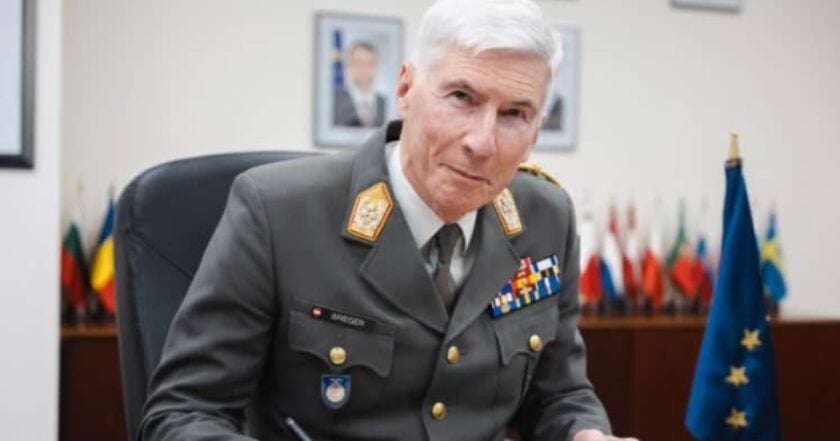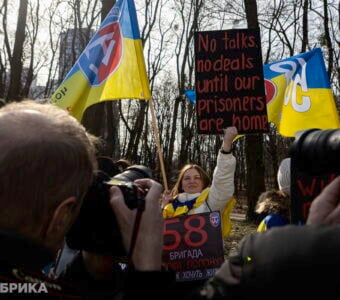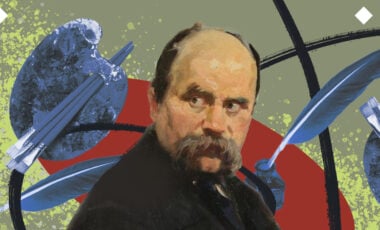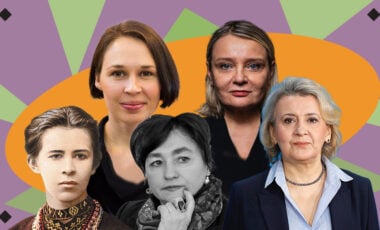EU suggests peacekeeping mission in Ukraine could include non-European participants after war

Фото: EU Satellite Centre
A potential ceasefire in Ukraine could be overseen by an international mission under the auspices of the United Nations, incorporating participants beyond Europe.
This perspective was shared by Robert Brieger, head of the European Union Military Committee, during an interview with Welt, as cited by Ukrinform and Interfax-Ukraine.
Brieger suggested that such a mission could include not only military personnel from European countries but also representatives from the Global South and the Caucasus. "A mission under a UN mandate is possible, involving not just Europeans but also soldiers from the Global South or, for instance, the Caucasus. EU soldiers will undoubtedly play a significant role," he stated.
He also noted that EU member states could contribute substantial forces to monitor the ceasefire, subject to a political decision. However, overseeing a demilitarized zone along the frontlines would likely require a substantial military presence, potentially "in the high five-figure range."
When asked whether the mission should be armed, Brieger said this would depend on political decisions. From a military standpoint, he argued that if the goal is to prevent a resurgence of conflict and ensure the ceasefire's effectiveness, the mission should have an executive mandate, and its soldiers should be provided with robust authority.
"This means they would also have the authority to enforce a ceasefire using weapons and air support. At the moment, this remains largely theoretical, but such a scenario could become a reality," General Brieger explained.
Brieger also dismissed Donald Trump's proposal to quickly end the war in Ukraine by "freezing" the front lines, calling it "unlikely."
"Such a decision is improbable. While it would have the advantage of halting further deaths, the downside is that the conflict would persist, potentially for decades—similar to the situation between North and South Korea," he noted.
The general referenced remarks made in 2023 by former US Chief of Staff Mark Milley, who stated that Ukraine cannot achieve total victory in the war with its current resources. Brieger emphasized that reclaiming lost territories would require a significantly larger deployment of forces than Ukraine currently has available.
As Chairman of the EU Military Committee, he highlighted the importance of Ukraine securing the strongest possible position in negotiations ahead of any potential ceasefire discussions.
Macron's initiative
French President Emmanuel Macron's announcement about the possibility of deploying troops to Ukraine has sparked a debate among Ukraine's allies.
France later clarified that the proposal does not involve sending troops to participate directly in combat. However, some NATO countries, including Lithuania, Latvia, Estonia, and Canada, expressed willingness to consider such a deployment.
In contrast, several other NATO member states, including the United States, Germany, the United Kingdom, Spain, the Czech Republic, Poland, and Canada, have stated they are not considering sending troops to Ukraine.
President Volodymyr Zelensky acknowledged that Ukraine requires security guarantees while awaiting an invitation to join NATO. He stated that Macron's proposal regarding the presence of foreign troops on Ukrainian territory could be a viable option under these circumstances.
According to Le Monde, discussions about foreign military involvement have resumed following Donald Trump's victory in the US presidential election. Reports suggest that Paris and London might lead an international military contingent, and debates—classified in nature—have intensified around the potential deployment of both regular troops and private military companies.
Meanwhile, British Foreign Secretary David Lammy reiterated that the UK's position remains unchanged, confirming that London does not plan to send troops to Ukraine.
On January 23, 2025, President Zelensky further clarified his remarks about peacekeeping forces in Ukraine, noting that their numbers could vary depending on the size of the Ukrainian Armed Forces.

How Army+1 project creates new path to voluntary military service, connecting civilians with brigades in Ukraine's mobilization efforts

Британська розвідка проаналізувала втрати армії рф та назвала найгірший місяць для окупантів



















































